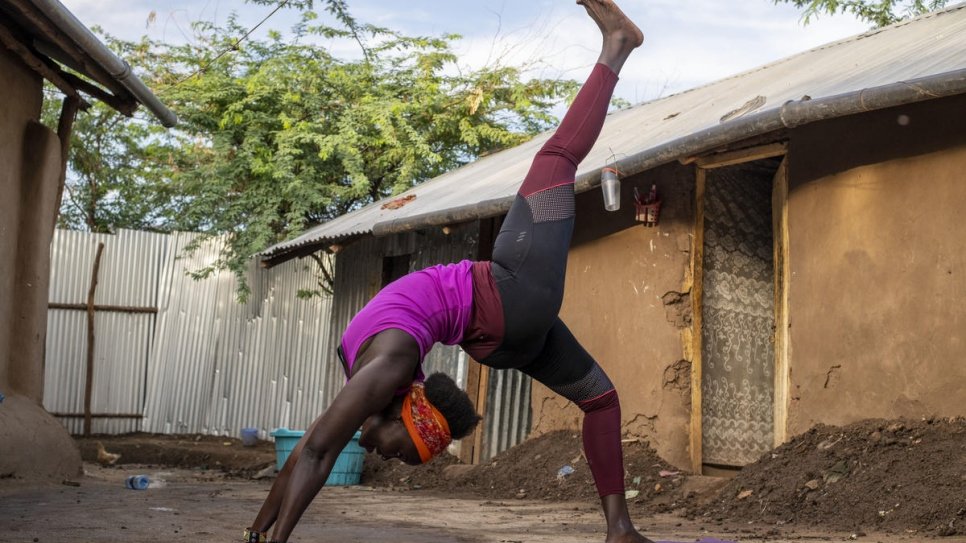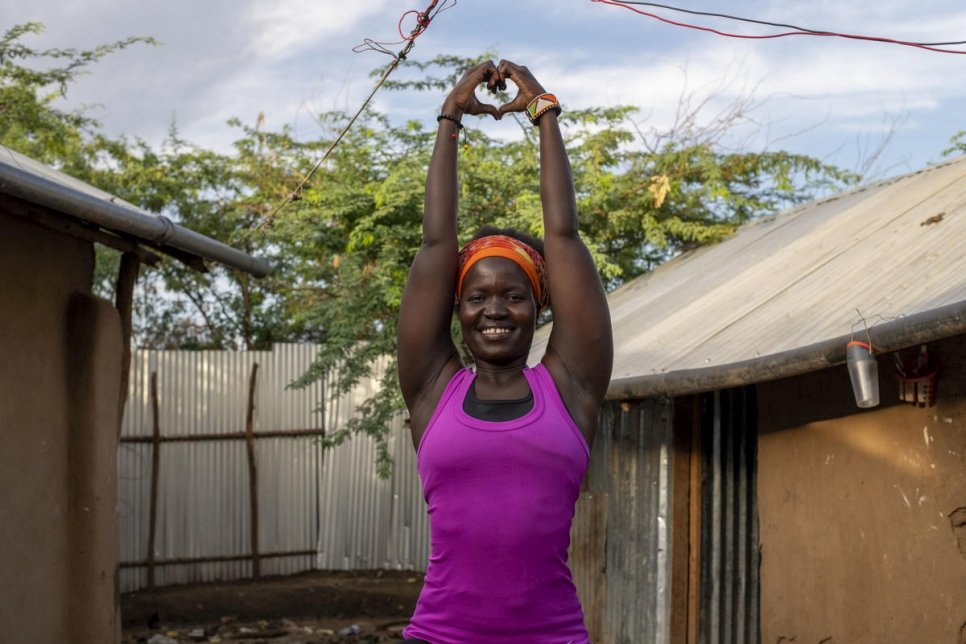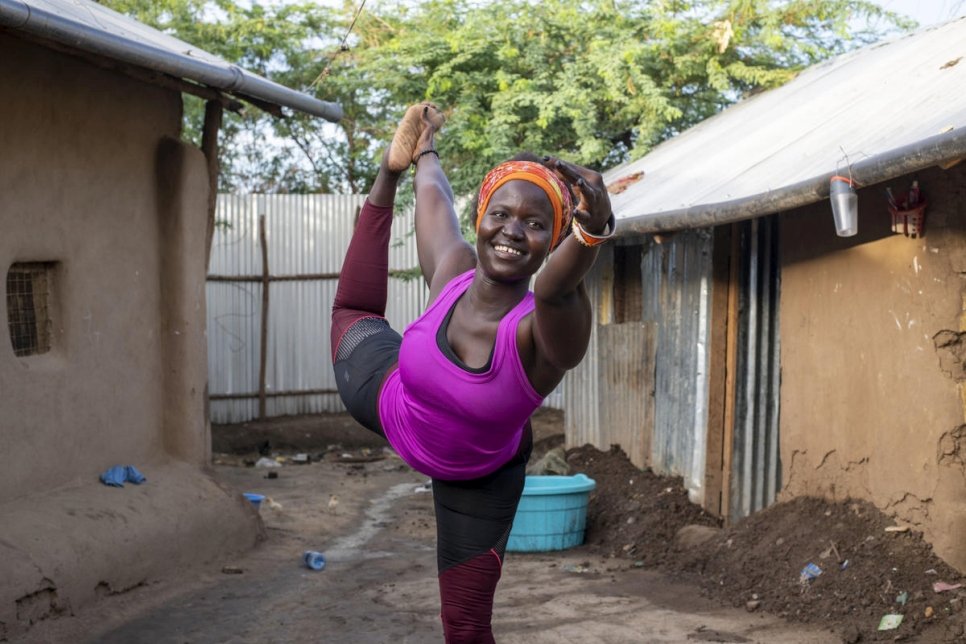Rita Brown raises her smartphone in the air to check for connectivity as she rolls her purple training mat out on the floor. She then opens the Facebook app on her phone before positioning it on a chair in front of her. In a minute, she will go live.
Dressed in a bright yellow vest that complements her smile, Rita is ready for her online yoga class which draws hundreds of refugee and Kenyan viewers.
She is soon joined by Sylvain, one of her new yoga students. They exchange pleasantries, warm up and get into the mountain pose, one of yoga’s standard positions. The class is on.
Sylvain, a Congolese refugee, picked interest in yoga after watching Rita’s sessions on Facebook before reaching out to her for one-on-one classes.
“My mind is always at ease and I feel refreshed after every session.”
“I feel a change in my body,” he says. “My mind is always at ease and I feel refreshed after every session.”
Before the COVID-19 pandemic, she ran in-person classes for refugees and aid workers at Kakuma camp and the adjacent Kalobeyei Settlement, which is home to 200,000 people. Since some physical distancing measures were imposed, she has taken the classes online through Zoom and Facebook, reaching an even wider and more diverse audience.
“Some people think the poses are Photoshopped, but they are not,” says Rita, 28, who fled violence in Uganda as a child. She and her twin sister, Dorine, fled on their own as orphans, at the age of seven, after they witnessed the murder of their parents. Her father, she says, died defending his family from the armed group who attacked their village, leaving destruction and death in their wake.
After taking part in an online yoga challenge dubbed ‘Sweat Serve Share’ she now offers yoga and meditation classes to audiences as far afield as the United States. It has become more than an exercise in physical wellbeing – it is what keeps her going.
“Yoga has changed me spiritually, mentally and emotionally,” she says, setting out how it has benefitted her. “It has helped me practice self-acceptance and see opportunities to be a better person in the hurdles I have encountered.”
Some research suggests that yoga enhances social wellbeing and can also improve some symptoms of depression and sleep disorders.
Rita adds that yoga has also helped her cope with the hardships of growing up in a refugee camp for many years without parents. Now a mother of one, with a Diploma in Social Studies, she has come to accept her life.
“This is where I started my studies, where I found refuge and where I found love,” she says. “Instead of lamenting, I decided to take the challenges and obstacles as an opportunity and a new beginning in my life.”
Rita is among the very first professional refugee yogis in the camp, after she was recruited last year into the Africa Yoga Project, a community-based organization that educates and empowers refugee youth in Africa through yoga.
Personal initiatives like Rita’s towards addressing mental health are in line with UNHCR, the UN Refugee Agency’s priority to ensure access to mental health for refugees in the camp.
“Addressing mental health does not begin with the organizations, it begins at home. It begins with how we look at ourselves, how we start our day, how we interact with others and the relationships that we keep,” says Lynn Waithera, a counselling psychologist at the Jesuit Refugee Service (JRS), a UNHCR partner. “It is a universal problem that can be dealt with by anyone and everyone.”
As part of its COVID-19 response, UNHCR and partner agencies like JRS stepped up access to mental health services for the refugee and host communities in Kakuma and the adjacent Kalobeyei Integrated Settlement.
During the pandemic and the ensuing lockdown, psychosocial counsellors have been providing virtual counselling to people of concern, including those in quarantine and isolation facilities. Toll-free helplines are also available to ensure people have unhindered access to counsellors and other mental health services.
“Yoga changed me and made me feel important, that’s why I want to change the lives of others through it.”
“We are aware of the mental health needs in the camp as many of our people of concern have had traumatic experiences which have forced them to flee,” says Ignazio Matteini, the head of UNHCR’s office in Kakuma.
“We encourage anyone with mental health concerns to seek help and take advantage of the services offered in the camp,” he adds.
He emphasizes that vulnerable groups like the elderly, people with disabilities, child-headed households, survivors of sexual and gender-based violence, some LGBTI refugees are prioritized to receive specific attention.
Through her online classes, Rita is already doing her part to address some of these issues.
“Yoga changed me and made me feel important,” she say. “That’s why I want to change the lives of others through it.”



